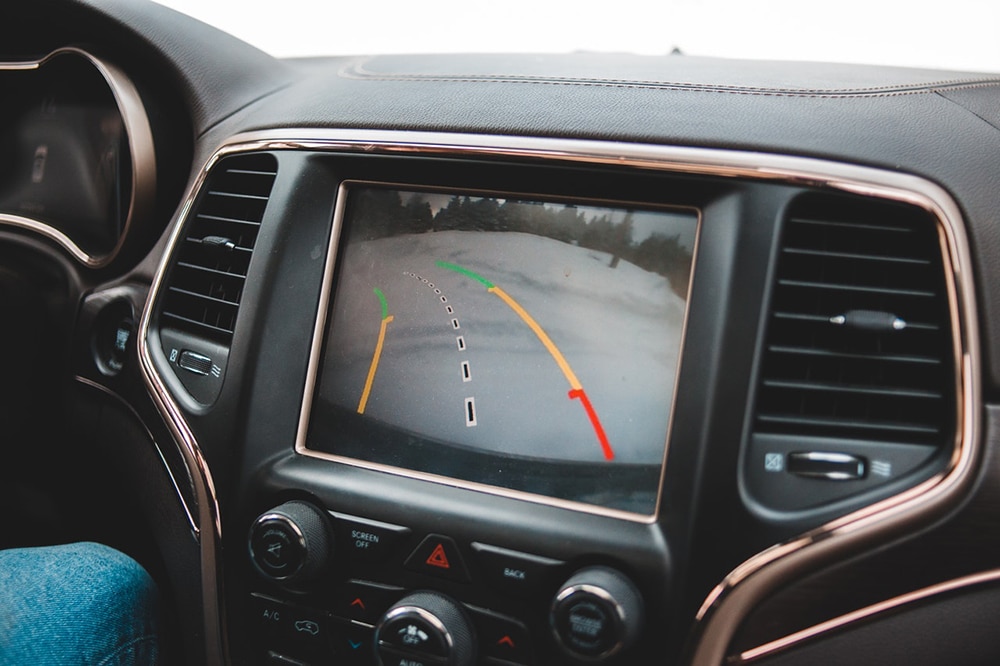Can I Use Dashcam Video Footage in My Auto Accident Case?

Proving liability after an auto accident can be difficult. It’s not enough to simply state your account of the incident to the insurance company and trust they will provide full and fair compensation. Strong evidence to support your claim is often required after an auto accident.
A dashboard camera (or “dashcam”) can be a valuable tool to help prove liability after a collision. The recording device mounted to your car’s dashboard or windshield can capture the events that unfold on the road, acting as a witness to the circumstances leading to your accident. However, there could be situations in which dashcam footage actually works against you. We’ll discuss those situations below.
Proving liability in an auto accident case can be tricky, but our team of Jackson car accident lawyers at Pittman Roberts & Welsh, PLLC have the knowledge and experience to expertly advocate for clients. We represent victims of accidents caused by another driver’s negligence in Mississippi. If you were injured through the fault of another motorist, we know how to gather the evidence needed to support your claim and win you maximum compensation.
Can Dashcam Video Footage Be Used as Evidence in a Car Accident Claim?
The video footage recorded by a dashboard camera can be used as evidence to support a car accident claim. Imagine a scenario in which you are stopped at a red traffic light. The light turns green, and you proceed with caution through the intersection. Suddenly, another vehicle speeds into the camera frame and collides with the passenger side of your car. If you have a dashcam recording this event, you can prove with relative certainty that the other motorist ran the red light and caused the accident.
Keep in mind, however, that not every car accident is so straightforward. Even a dashcam has limitations—it won’t be able to pick up every event that transpires prior to and during the collision. For example, you may be struck in a rear-end collision when the camera is facing forward. When events outside the video frame contributed to the crash, it can be more difficult to use this evidence to fully prove liability.
Even if the dashcam wasn’t able to record the moment of impact in its entirety, it may have captured important contributing factors. In the example of the rear-end accident, the camera might not have recorded the actual collision. But it may have captured video footage of the child who rode a bicycle into your path and forced you to slam on the brakes.
Information obtained by a dashboard camera can indicate:
- Traffic and weather conditions at the time of the accident
- Nearby traffic signs and signals
- Whether a traffic light was red, green, or yellow
- Any pedestrian or bicyclist in the vicinity who was involved in the crash
- Road debris, broken traffic signals, or other factors impacting road safety
- The actions of drivers on the road around you
- Speeds of involved vehicles
It’s possible that what you think is useless video footage is actually key to your auto accident case. Professionals like traffic accident reconstructionists are trained to analyze every detail in a photo or video. You may have missed a valuable piece of evidence in your dashcam video footage. A car accident attorney will have your video professionally analyzed so you fully understand how it impacts your claim.
How Can a Dashcam Impact My Auto Accident Case?
We’ve seen that dashcam footage can be helpful in an auto accident case. But it can also cause complications.
Dashcams are now legal in all 50 states. There are, however, a few restrictions about what can legally be recorded. Some dashcams record events outside the vehicle without audio, while other cameras capture audio (and sometimes video) inside the car’s cabin. You’ll need to make sure you aren’t in violation of any state surveillance laws if you are recording the conversation of individuals inside the vehicle. Additionally, you may not be able to use dashcam footage recorded on private property in certain states. If it’s discovered that your use of a dashcam violated a state law, your video footage may be invalid, and your case may be further complicated.
Another thing to consider is your placement of the dashcam inside the vehicle. A handful of states have laws about where and how dashcams can be mounted in the car. If your dashcam was illegally placed, that can be another factor working against you. Even if you didn’t specifically break a law, you may have used a dashcam in such a way that it blocked your line of sight. If your vision was obstructed, the placement of the dashcam itself may have contributed to the accident.
Finally, the events recorded on video are not always interpreted the same way. You may think that your dashcam video footage proves the other driver was liable. In fact, the other driver’s insurance company may think just the opposite—that the video shows you to be the liable party. For example, video footage may show the other driver making an illegal turn at an intersection. However, the accompanying audio may reveal that you were involved in a heated phone conversation before the collision. This information could be used to prove that you were distracted at the time of the accident.
It’s best to speak with your car accident lawyer to make sure your case has the best chance for a successful outcome.
Get Help from a Qualified Lawyer
If you are considering your legal options after an auto accident, be sure to speak with an experienced attorney about how your dashcam footage may impact your car accident claim. Contact our office to learn more about how we can put our expertise to work for you. A Pittman Roberts & Welsh, PLLC car accident lawyer will be in touch to schedule a free, no-obligation case evaluation at our Jackson office.








